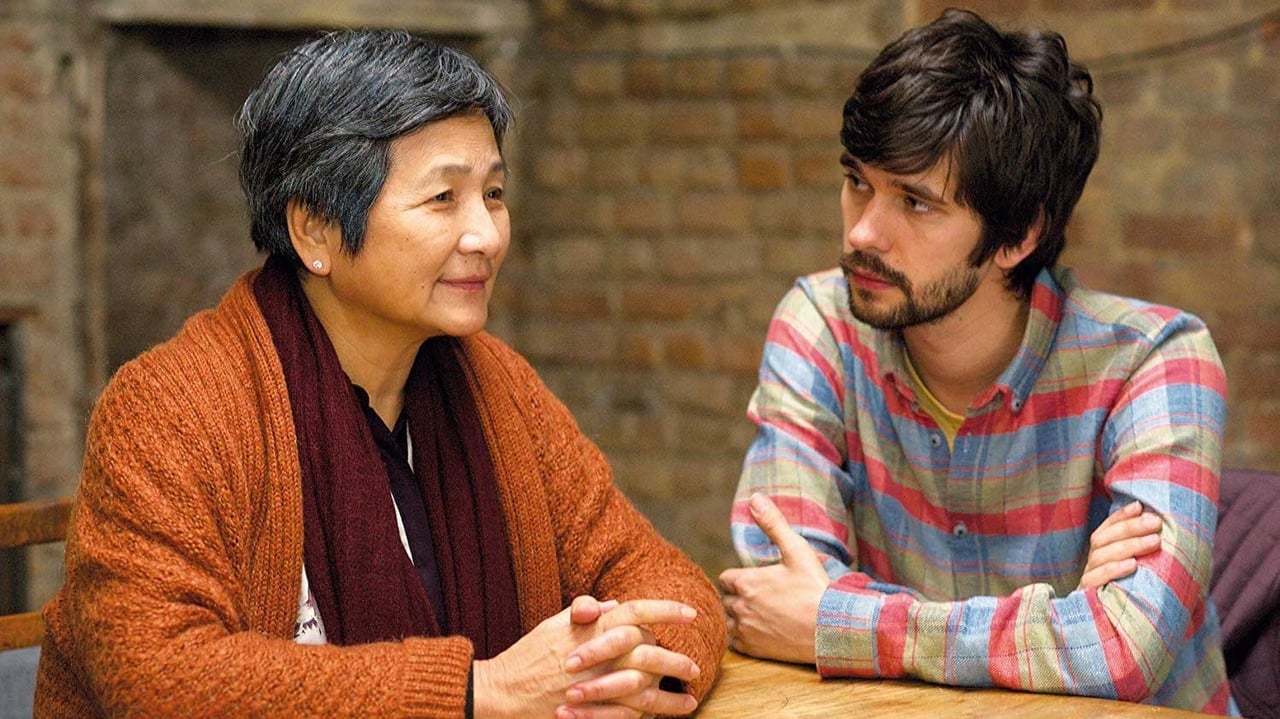

Hydrangeas has two meanings in the language of flower. The flower was seen three times: twice mentioned its name by Kai, once shown at the end in which the mother was narrating. One is the coldness/heartlessness and this represents the mother's hatred toward Richard or dissatisfaction caused by Kai at the beginning of and the middle of the movie. Another meaning, is the giver's appreciation for the receiver's understanding: "Thank you for understanding." At the end of the movie where the mother and the flower were shown together, the flower tells the change of the mother's feeling and now the mother accepts what she faces. Thus, you might sense Kai's appreciation. This sounds sort of distorted but I like to stick to this idea because it is simply beautiful. Hope this surprises you.
... View MoreI loved every minute of this very rare jewel. It works so well on each degree of perception, from the base camp and practicality of needing a translator, to the use of fine photography in capturing the stillness and stultifying grief of both Jun and Richard, and on to the more complex tones and notes of dealing Kai's 'coming out' posthumously.The notion of aged care homes being decorated in retro style is charming and works well with the contrasted scenes in Richard's flat. I note that Jun hates the wallpaper ~ the ghost of Oscar Wilde whispering in the hallway? It is great to see the Mandarin language use in an English film ~ another rarity?, along with the gorgeous use of the song 'Sway' and Jun's longing to hear it, the repeated promise from her son broken until Richard delivers the goods.Warning: this film contains dancing.
... View MoreThough being generally positive about this film, I must admit upfront that I had problems with its use of flashbacks featuring the deceased Kai. I only understood afterwards on the way home what I missed, while apparently easily picked up by others whose reviews I saw. The first example is the scene with Kai and Junn, shown twice, the first time ending when someone entered the room to replace a light bulb but does not see Kai, making clear for most viewers (apparently, but not for me) that Kai existed only in Junn's mind. The second appearance of this scene ended before the bulb-change person entered, so I had no chance to reconsider. Kai died some time ago, and I only knew that from reading the synopsis beforehand, and a virtual visit like this one was Junn's own way to keep the reminiscences of her son alive. A second example where I missed the obvious were the scenes with Kai and Richard at home, apparently (again, in hindsight) happening in the past, where they talk about living together with or without Junn, in either case how and when to reveal the true nature of their gay relationship. Rationally speaking (again, while looking back), it is abundantly clear that these flashbacks were inevitable to clarify the respective relationships. Yet I think there could have been thought of other ways to accomplish that, without hampering our chronological narrative way of thinking that usually works best. The way it is done now feels a bit artificial, and it hampered my viewing experience. I am prepared to admit that the latter can be my fault altogether.Perfectly clear throughout the whole running time is that Junn and Richard belong to two different worlds. There is much more than merely a language barrier that withholds them from really communicating. The interpreter he hired, Vann, dismisses Junn's lack of knowledge of the English language, calling her a "lazy bitch" which was obviously a common phenomenon under female immigrants. On one hand they could depend on their spouse or children to interface with the outer world, and on the other hand it demonstrates Junn's bland refusal to adapt to the world where she lived in for many years. That also explains how the English way to take care of the elderly, being very different from her own traditions, stood between Junn and Kai for a long time, in spite of Kai repeatedly saying that the home for the elderly she was put in, was just a "temporary" measure. Anyway, Kai did not have to cope with a language barrier, and still failed to drive the message home, particularly as he kept postponing a decision to explain the real relationship between himself and Richard, fearing she would not understand and working disruptively on the relationship between mother and son.A nice find is the introduction of Alan as Junn's would-be lover. They "dated" several times before, both without understanding a word what the other was saying. This courting formed an excuse for Richard to hire Vann as an interpreter, fitting nicely his own hidden agenda to come closer to Junn. The relationship between Alan and Junn changes as soon as their communication improved. It brings several differences to light, some not so important but others seemingly insurmountable. Junn is not the modest passive woman we assumed at first sight; she can make her position very clear when felt necessary.The final scene demonstrates hope for their future. Junn and Richard seem to be able to communicate without interpreter Vann translating each sentence (this is rather implicit, but even I understood by virtue of their body language). We see a mutual trust and understanding growing between the two when exchanging sentences, in spite of not really knowing what the other was saying. I must admit being a bit lost during this final scene. It took some time on the way home to grasp all the things that were shown implicitly. The preceding scenes were abundantly clear in comparison, but this one needed some afterthought. We can imagine for ourselves how their relationship is about to continue, this being left as an exercise for the viewer.
... View MoreJunn (Cheng Pei Pei) is a widowed Cambodian-Chinese woman who lives in an old peoples home in London, placed there by her only son Kai (Andrew Leung). With no other family, and having left Cambodia over 50 years ago, Junn is alone and unwilling to adapt to her surroundings or the people she's placed with.She relies on Kai's attentions and affections, but her isolation becomes utterly complete with his unfortunate death. Junn knew that Kai lived in a house with Richard (Ben Wishaw), but Kai hadn't told her they were together as a couple. Grief-stricken himself, Richard feels duty-bound to help Junn, but they don't even share a common language let alone know much about each other.Alan (Peter Bowles) resides at the home too and starts an unusual relationship with Junn where they talk to each other in their own languages, not really knowing what on earth the other is thinking or talking about apart from physical gestures. Richard tries to help this sweet pairing by hiring a translator in Vann (Naomi Christie), so that they can communicate with each other. Its a way in for Richard to get closer to Junn, who has her own reasons for disliking him.'Lilting' is the debut from writer-director Hong Khaou, who shines a light on contrasting cultures in the capital. Grief is foremost in the minds of all concerned, Wishaw is wonderful as the achingly suppressed Richard, who gradually releases his grief the more he gets to know Junn, showing her just how much he loved Kai. Pei Pei plays the stoic mother perfectly, you can see the isolation, love and grief in her eyes.In light of the subject matter, the overall mood of 'Lilting' is quite forgiving. Junn and Alan provide the most endearing moments as well as some awkwardly comical scenes especially when they confess their bad habits to each other. Dealing with such weighty issues as love, memory, language and mourning, Khaou has directed an assured and thoughtful film full of subtle releases and deeply felt emotions.
... View More